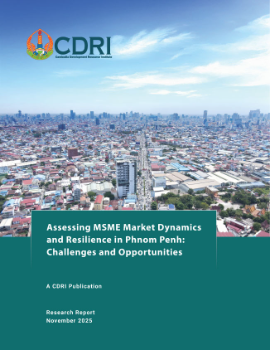
Assessing MSME Market Dynamics and Resilience in Phnom Penh: Challenges and Opportunities
This report examines the market dynamics and resilience of micro, small, and medium enterprises (MSMEs) in Khan Meanchey, Phnom Penh, based on data from 14,820 establishments. MSMEs are deeply embedded in the urban economy, with nearly every household engaged in business activity. Despite a strong post-pandemic recovery in 2023, early signs of...
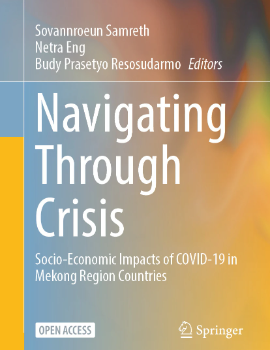
COVID-19 and Countries in the Mekong Region
This chapter provides an overview of the COVID-19 pandemic, its socio-economic impacts, and policy responses in Cambodia, Lao PDR, Myanmar, and Vietnam (collectively referred to as CLMV). It presents how the pandemic affected key sectors and heightened existing vulnerabilities, particularly among women, migrant workers, and those in the informal se...
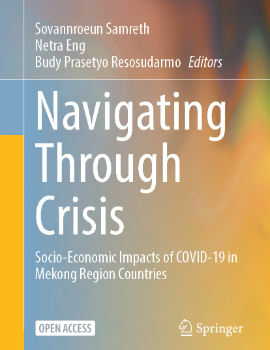
Assessing the Impact of COVID-19 on Cambodia’s Trade, Global Value Chain, and Export Competitiveness
The COVID-19 pandemic has severely disrupted global economic activity, impacting Cambodia’s trade dynamics, weakening its integration into global value chains, and undermining export competitiveness. This chapter assesses the pandemic’s effect on Cambodia’s trade landscape, focusing on shifts in export structure, supply chain disruptions, and chang...
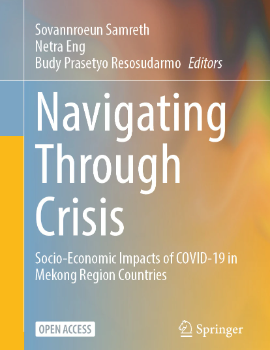
Cambodian Cassava and COVID-19: An Analysis of Production, Productivity, and Gender Impacts
Although the agriculture sector in Cambodia was initially considered less vulnerable to the COVID-19 pandemic, cassava farmers experienced severe economic hardship due to the increase in input prices, fluctuations in output prices, and challenges in infrastructure development. However, these aggregate impacts hide the disproportionate repercussions...
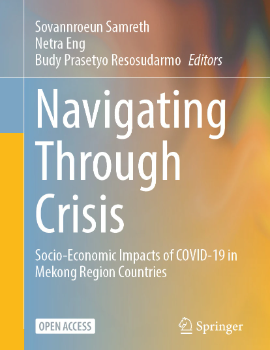
Navigating Crisis: Firm Performance and Strategic Responses in Cambodia
The COVID-19 pandemic significantly impacted Cambodia’s economy, leading to a contraction of -3.1% in 2020, with sharp declines in the service and industry sectors. Cambodian businesses, particularly small and medium enterprises, faced considerable turmoil while already grappling with challenges. This study examined firm performance—including expen...
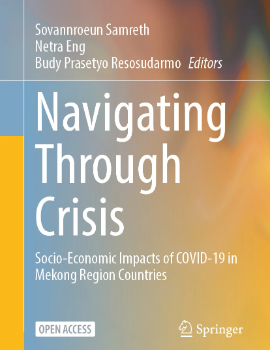
Lessons from the COVID-19 Pandemic in the Mekong Region
The experiences of Cambodia, Lao PDR, Myanmar, and Vietnam offer several lessons for the pandemic’s responses. First, economic diversification and innovation improved resilience to the shocks. Second, timely public health actions lessened the pandemic’s adverse effects. Third, the pandemic revealed social protection gaps, especially for migrant and...
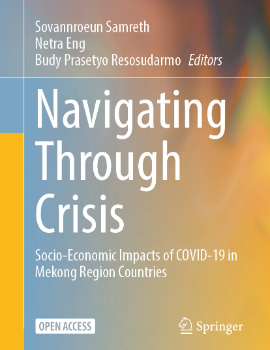
Navigating Through Crisis: Socio-Economic Impacts of COVID-19 in Mekong Region Countries
This open access book explores the socio-economic challenges and recovery efforts in Cambodia, Laos, Vietnam, and Myanmar during the COVID-19 pandemic. It focuses on the pandemic’s wide-ranging impacts, particularly on individuals, households, and small and medium-sized enterprises across key sectors such as agriculture, garment manufacturing, and...
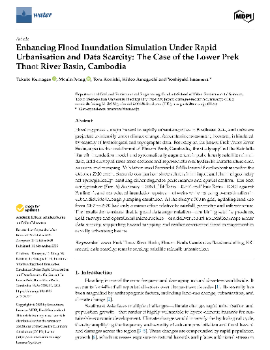
Enhancing Flood Inundation Simulation Under Rapid Urbanisation and Data Scarcity: The Case of the Lower Prek Thnot River Basin, Cambodia
Flooding poses a major hazard to rapidly urbanising cities in Southeast Asia, and risks are projected to intensify under climate change. Accurate risk assessment, however, is hindered by scarcity of hydrological and topographic data. Focusing on the Lower Prek Thnot River Basin, a peri-urban catchment of Phnom Penh, Cambodia, the study applied...
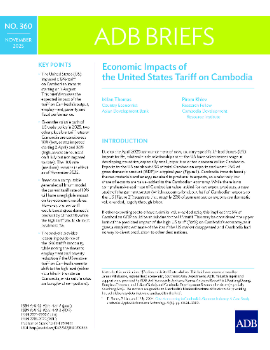
Economic Impacts of the United States Tariff on Cambodia
Due to the April 2025 announcement of new, country-specific United States (US) import tariffs, bilateral trade relationships with the US have taken center stage in developing countries, especially small, export-oriented economies like Cambodia. Exports to the US are about 33% of total Cambodian exports and worth 25% of gross domestic product (G...
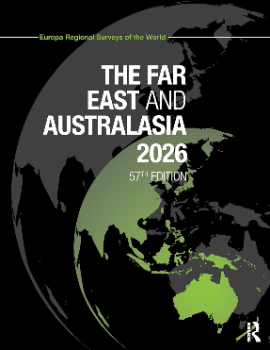
Aid and Development in South-East Asia
Southeast Asia exhibits varied developmental progress, meaning Official Development Finance (ODF) remains essential for closing key infrastructure and development gaps.The focus of development aid has evolved from its historical geopolitical origins to a modern emphasis on poverty reduction, governance, and inclusive economic growth.Today's develop...
